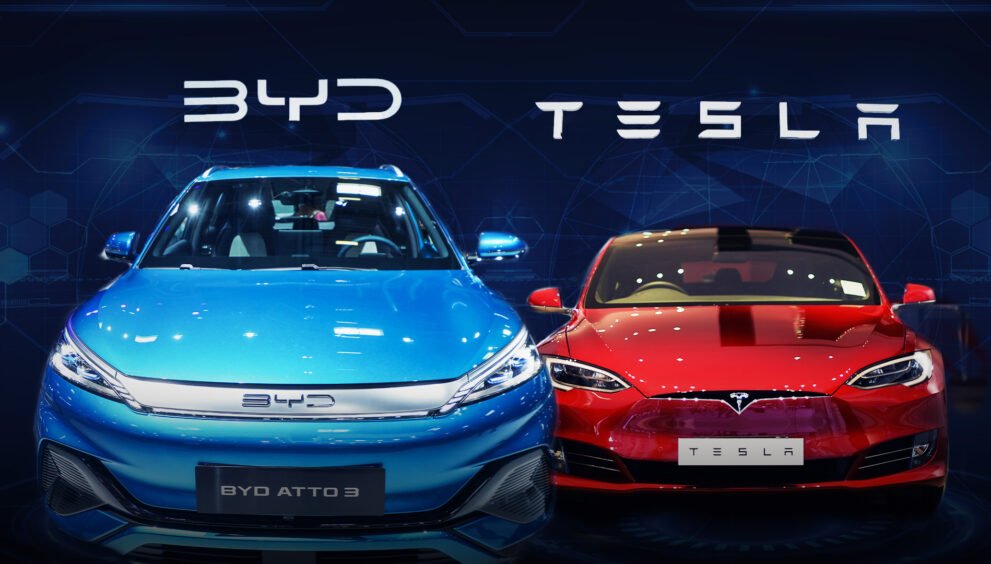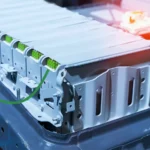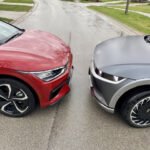EV News 2025: Latest Updates from Tesla, BYD, and Renault

EV News 2025: Latest Updates from Tesla, BYD, and Renault
The electric vehicle landscape experienced dramatic shifts throughout 2025, with major automakers making bold moves that reshaped market dynamics. From Tesla’s Cybertruck finally hitting the mainstream to BYD’s explosive global expansion and Renault’s affordable EV revolution, this year marked a pivotal moment in automotive history. Here’s your comprehensive roundup of the most significant EV news 2025 brought us.

Tesla Updates: Cybertruck Momentum and Strategic Shifts
Cybertruck Achieves Mass Production Success
In August 2025, the Cybertruck was readily available for delivery in the U.S., and Tesla shut down the reservation process. This milestone marked a significant achievement for Tesla, following years of production delays and engineering challenges. Tesla sold 38,965 Cybertruck pickup trucks in 2025, according to estimates from Cox Automotive.
The Cybertruck’s performance in its first full year proved impressive, outselling established electric truck competitors like the Ford F-150 Lightning and Chevrolet Silverado EV. This success validated consumer appetite for Tesla’s unconventional design approach and demonstrated the company’s ability to scale production of complex vehicles.
Range Extender Innovation
Tesla claims it will start producing a range extender for the Cybertruck in mid-2025. Essentially an additional battery, the unit takes up some bed space in trade for a claimed 120-mile range boost. This $16,000 accessory addresses one of the primary concerns about electric pickup trucks – range anxiety when towing or hauling heavy loads.
Roadster Development Continues
While specific Roadster updates remained limited in 2024, Tesla continued development of its next-generation sports car. The company’s focus on Cybertruck production and scaling manufacturing took priority, but Roadster prototypes continued testing advanced battery technology and performance capabilities that will likely influence future Tesla models.

BYD Electric Cars: Global Domination Strategy
Record-Breaking Sales Performance
The Chinese auto giant closed 2024 with a record 4.3 million EV and hybrid sales, shattering its initial target of 3.6 million units. While BYD’s 1.76 million pure EV deliveries fell just shy of Tesla’s 1.79 million, BYD‘s commanding performance in hybrids has secured its crown as the world’s leading new energy vehicle manufacturer.
This achievement positioned BYD as a formidable challenger to Tesla’s electric vehicle supremacy. BYD surged past Tesla in Q3 revenue, bringing in $28.2 billion to Tesla’s $25.18 billion.
International Expansion Accelerates
BYD’s global expansion gained significant momentum throughout 2024. On January 18, BYD held a passenger car brand launch event at the Taman Mini Indonesia Indah in Jakarta, introducing three battery electric vehicle (BEV) models – the BYD ATTO 3, the BYD DOLPHIN, and the BYD SEAL.
The company’s European presence expanded substantially, challenging established automakers with competitive pricing and innovative electric vehicle technology. BYD’s vertical integration strategy, controlling everything from battery production to final assembly, enabled aggressive pricing that disrupted traditional automotive markets.
Advanced Battery Technology Leadership
As of 2024, BYD’s battery subsidiary FinDreams Battery is the world’s second largest producer of electric vehicle batteries behind CATL. It specialises in lithium iron phosphate (LFP) batteries, including BYD’s proprietary Blade battery.
The Blade battery technology represents a significant advancement in battery safety and energy density. Unlike traditional lithium-ion batteries, BYD’s Blade design eliminates thermal runaway risks while maintaining competitive energy density and charging speeds. This technological edge contributed significantly to BYD’s market success.

Renault EVs: Affordable Electric Revolution
Renault 5 EV Launch Success
The Renault 5 E-Tech is a B-segment battery electric car produced by the French manufacturer Renault since 2024. Inspired by the original Renault 5 in styling, the 5 E-Tech was previewed by a concept car shown in January 2021.
The production model represented Renault’s ambitious plan to make electric vehicles accessible to mainstream consumers. Prices for the Renault 5 start from £22,995 for the entry-level Urban Range car in Evolution trim, positioning it as one of the most affordable electric vehicles in its segment.
Technical Specifications and Market Impact
Range is 195 miles, same as the larger-battery Fiat 500. The other (starting at £26,995) has a 52kWh pack using NMC cells at 400V. The motor is an electrically excited synchronous machine (i.e. no rare-earth elements in magnets in the rotor, but all coils for rotor and stator) with 150bhp.
This technical approach demonstrates Renault’s commitment to sustainable manufacturing while maintaining competitive performance. The elimination of rare-earth elements reduces environmental impact and supply chain vulnerabilities.
Strategic Positioning
The Renault 5 EV’s retro-inspired design combined with modern electric technology created significant market buzz. Early reviews praised its blend of nostalgic styling with contemporary electric vehicle capabilities, suggesting strong potential for mainstream EV adoption among consumers previously hesitant about electric vehicles.

Industry Trends Reshaping the EV Market
Price Competition Intensifies
Throughout 2024, electric vehicle pricing became increasingly competitive as manufacturers scaled production and battery costs decreased. Tesla implemented multiple price adjustments across its model lineup, while Chinese manufacturers like BYD pressured traditional automakers with aggressively priced offerings.
This price competition benefited consumers but pressured automotive profit margins, forcing manufacturers to optimize production efficiency and supply chain management.
Policy Changes and Government Support
Government policies continued shaping EV adoption patterns globally. European Union regulations on internal combustion engine phase-outs accelerated manufacturer investment in electric platforms, while various national incentive programs influenced consumer purchasing decisions.
The United States maintained federal tax credits for qualifying electric vehicles, though eligibility requirements evolved based on domestic content and final assembly location requirements.
Battery Technology Advancements
Beyond individual manufacturer developments, industry-wide battery technology improvements accelerated in 2024. Lithium iron phosphate (LFP) batteries gained broader adoption due to cost advantages and improved safety characteristics, while solid-state battery research continued advancing toward commercial viability.
Charging infrastructure expansion also continued, with major networks adding high-speed charging locations and improving reliability. This infrastructure development directly supported increased EV adoption by addressing range anxiety concerns.
Supply Chain Maturation
The electric vehicle supply chain matured significantly during 2024, with component suppliers scaling production and reducing costs. Battery material sourcing became more diversified, reducing dependence on single geographic regions and improving supply security.
Looking Ahead: 2025 Expectations
The momentum established in 2024 sets the stage for continued electric vehicle market growth. Tesla’s Cybertruck success demonstrates consumer acceptance of innovative designs, while BYD’s global expansion challenges established automotive hierarchies. Renault’s affordable EV strategy shows how traditional manufacturers can compete in price-sensitive market segments.
These developments collectively indicate that 2024 marked a turning point where electric vehicles transitioned from early adopter products to mainstream consumer options. The combination of improved technology, competitive pricing, expanding infrastructure, and supportive policies created conditions for sustained EV market growth.
The competitive dynamics established in 2024 between American innovation, Chinese manufacturing efficiency, and European design philosophy promise continued market evolution. As these trends continue developing, consumers benefit from increased choice, better technology, and more affordable electric vehicle options across all market segments.






















































































































































































































































































































